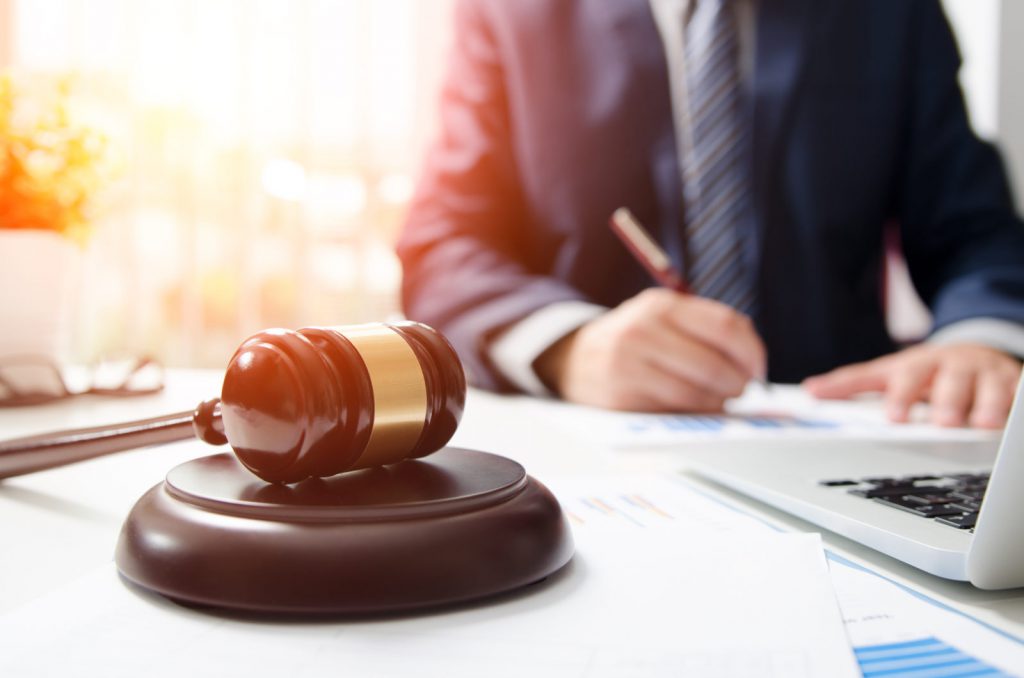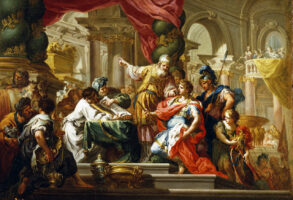
Published December 22, 2017
Several years ago, we had a problem with a merchant. We declined to pay a disputed bill and got a call from a collection agency. The caller was both aggressive and cagey, declining to tell me who he was. I handed the phone to my lawyer husband, who listened for a minute or two and then turned the tables. From the other room, I heard a fusillade of legal terms, including acronyms like FDCPA (Fair Debt Collection Practices Act) and FCRA (Fair Credit Reporting Act). By the end of the encounter, I almost pitied the fellow on the other end of line.
That’s how someone who understands the system handles a debt dispute.
I thought of that as I listened to Ariel Levinson-Waldman, the founder of Tzedek DC, describe the problems of low-income District of Columbia residents who face debt collections. Our legal system is so complex and intimidating that non-lawyers almost never prevail representing themselves. If you are charged with a crime and cannot afford to hire a lawyer, the state provides one for you. But in civil matters like debt collection, the poor get only very limited assistance from the Legal Services Corporation.
The poor are hardly alone in struggling with debt. An estimated 77 million Americans, or 35 percent of those with credit files, have a debt in collections. Those with resources — material or familial — can extricate themselves. But for the poor, a debt default can begin a cascade of consequences that prove ruinous. Their credit rating is trashed, their wages may be garnished, their driver’s licenses may be suspended — all making it that much more difficult to get back on their feet as working, self-supporting individuals.
TzedekDC (tzedekdc.org) is a new Jewish lawyers group dedicated to providing pro bono debt representation for the poor. Whereas these disputes were once a matter of debtor vs. creditor, in recent decades the game has changed. Large companies write off their bad debt and sell the paper to third parties for pennies on the dollar. These big debt buyers then hire phalanxes of lawyers to sue thousands of people. The plaintiffs are knowledgeable and experienced, the defendants are often ignorant about the process. In the District of Columbia, more than 90 percent of poor people with debt collections never receive assistance, and a large percentage of those who receive summonses don’t appear in court — thus ensuring a default judgment.
Having a lawyer can make all the difference. Often the obligation is real, in which case Tzedek (which is Hebrew for “justice”) lawyers can negotiate payment plans, instead of a lump-sum obligation, to avoid bankruptcy and a damaging credit report. In other cases, the debts are bogus. One client had been the victim of identity theft — all of the charges on her credit card were in Florida, where she had never lived or visited. A Tzedek attorney accompanied her to mediation, where the case was dismissed.
Pedro Amaya, an immigrant with limited English skills, was driving a truck to support his wife and children when his license was suspended due to unpaid bills. Without the ability to drive, he could not work, and the Amayas were on a downward spiral. With Tzedek’s help, they were able to reinstate his license and arrange for repayment of his debts.
In other cases, Tzedek has found errors, such as the wrong amount, mistaken identity, claims that were too old to be litigated, and debts that had already been paid. With 40 volunteer lawyers in their first year, Tzedek has been successful in 90 percent of cases. As one D.C. law professor put it, they are able to bring people “from darkness back to the light.”
They have also teamed up with other charitable groups — like the United Planning Organization and the Little Lights Ministry — to help the poor avoid debt in the first place. They teach financial-literacy classes to help people make and stick to a budget, manage cash flow, and learn about their rights and options if they do run into difficulties. They have also lobbied the District government to reform the laws about license cancelation for unpaid debts. Often, if the poor cannot drive, they cannot make a living. Some choose to risk it and sometimes end up prosecuted for driving without a license. What had been a civil complaint becomes a criminal matter, and the walls close in.
Tzedek’s legal lifeline is non-governmental and non-partisan. It receives no federal money and attracts volunteers from across the spectrum from former Scalia clerks to “progressives like me,” as Levinson-Waldman put it. Whatever your political sympathies, helping the poor to navigate our bewildering system and get their lives back on track is something to celebrate in this season of giving.
— Mona Charen is a senior fellow at the Ethics and Public Policy Center. Copyright © 2017 Creators.com




